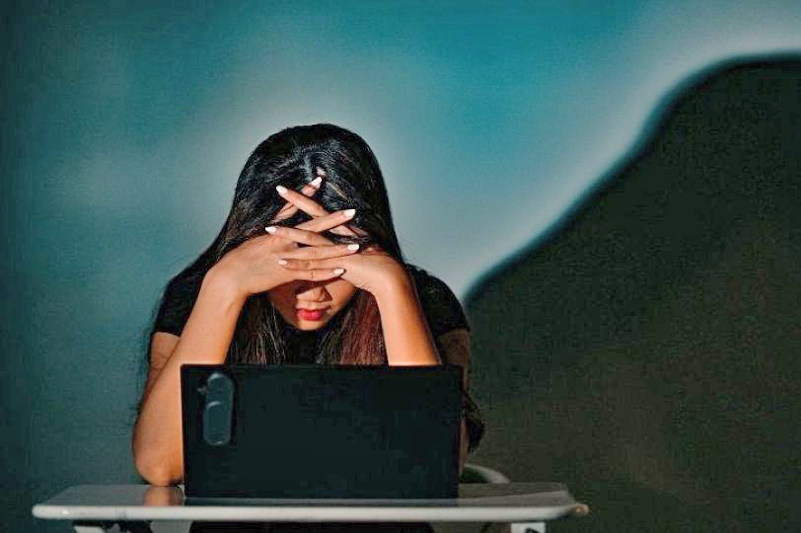SINGAPORE – A large number of youth in Singapore are experiencing severe or very severe symptoms of depression, anxiety or stress, according to the first nationwide survey on youth mental health by the Institute of Mental Health (IMH).
Nearly a third of young people ages 15 to 35 report symptoms including feeling empty, tense or frustrated most of the time, the National Youth Mental Health Survey says.
“Dealing with the complexities facing youth is challenging enough, but young people today struggle with unique issues that previous generations did not,” said Associate Professor Swapna Verma, who chairs the IMH medical board and is a co-author of the study.
“For example, social media exposes them to a culture of constant comparison, thus increasing concerns about body image.
“The limitless online world has also given rise to cyberbullying, which adds a new dimension of persistent and pervasive harassment.”


Young people are more likely to report symptoms if they experience cyberbullying, have moderate to severe concerns about their body image or spend more than three hours per day on social media, said the IMH, which released its results on September 19.
Epidemiological studies across the country show widespread symptoms of depression, anxiety and severe stress, with associated factors including cyberbullying, body image concerns and excessive use of social media, as well as gaps in treatment and support resources among young people here.
The one-third figure is similar to the results of other research studies based on self-reports, the Ministry of Health, Education and Social and Family Development said in a joint statement on September 19.
In particular, a higher prevalence of symptoms of depression, anxiety and stress was found among those aged 15 to 24 years, and in the Malay ethnic group.
Between October 2022 and June 2023, a total of 2,600 Singaporeans and permanent residents completed a set of self-administered questionnaires, using tablets provided by interviewers.
Studies have found that youth anxiety is the most common mental health problem experienced by young people in Singapore. About one in four people reported experiencing severe or very severe anxiety symptoms in the week before the survey. This includes feeling anxious, depressed and restless most of the time.
About 15 percent of Singapore’s youth experienced symptoms of depression to the same extent, while nearly 13 percent felt extremely depressed, unable to relax, or felt upset or irritable most of the time in the week before the survey.
The good thing is that about two out of three of those who report having severe or very severe mental health symptoms seek help, especially talking to family and friends.
One in three young people do not seek help, despite having severe or very severe symptoms. Professor Swapna said this gave IMH an opportunity to find ways of early intervention, including strengthening the mental health curriculum in schools.
Those who chose not to seek help said it was because they didn’t think a specialist could help them, or they were worried about what others thought of them. Another concern is about privacy, confidentiality and having a permanent record of their condition.
Studies have found that young people who are less likely to experience severe or very severe symptoms of depression, anxiety or stress have higher levels of resilience, perceptions of social support and higher self-esteem.
While not all individuals with severe or severe symptoms of depression or anxiety have a clinical condition, experiencing such conditions for long periods of time can be detrimental to their well-being, Professor Swapna said.
By identifying groups at higher risk of mental health disorders, the results of the study will help policy makers and service providers develop a more targeted approach in addressing their needs and preventing them from developing mental illness, he added.
The IMH study, like many others, shows that excessive use of social media is a public health concern and has a significant impact on the mental health of youth, said Associate Professor Mythily Subramaniam, assistant chair of the medical board (research) at IMH.
Worldwide research has found that teenagers who spend more than three hours per day on social media may be at increased risk of developing mental health problems, particularly mood and anxiety disorders, he said.
The identification of important related factors, such as excessive use of social media, body image concerns and cyberbullying, also highlights the importance of integrating prevention measures into school and youth services, he added.
“In addition, the three factors may potentially be related to each other.
The amount of time young people spend on social media can also be linked to cyberbullying and both can either independently or together lead to body image concerns,” she said. – ANN/The Straits Times

